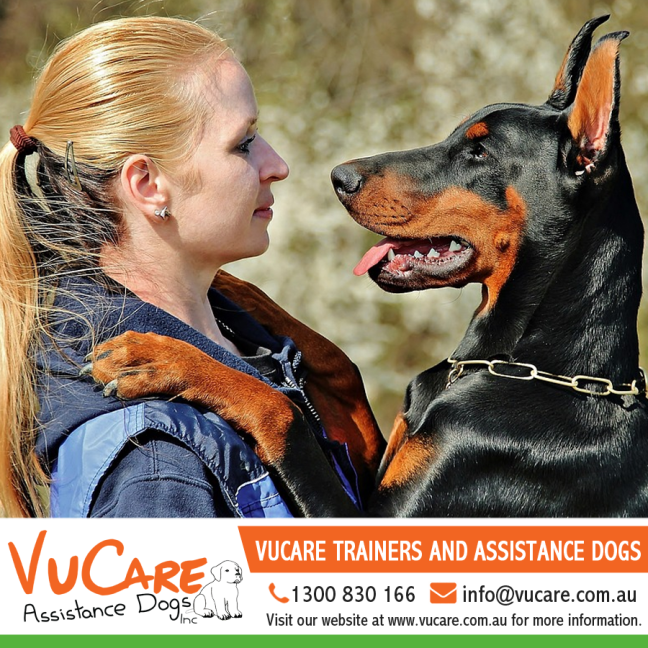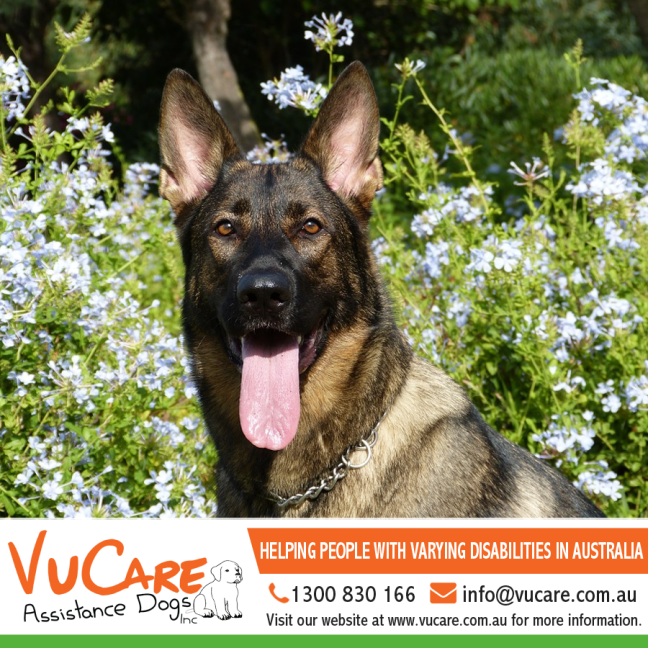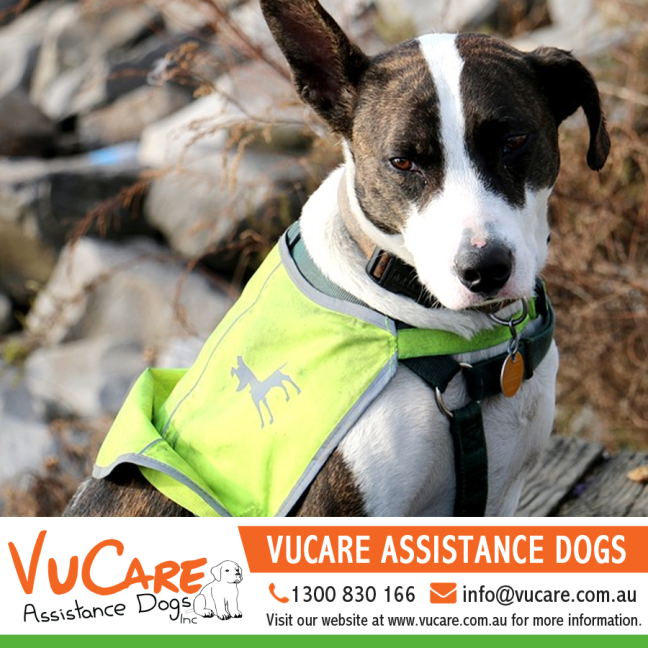
A Guide Dog is a working dog that’s been highly trained to direct someone with impaired vision safely from one place to another.
What’s the function of an assistance dog?
Assistance Dogs assist people with disabilities and give them freedom and independence. They help their clients with things like picking up dropped items, opening, and closing doors, pressing the button at the traffic lights and alert barking when their customer is in trouble.
Why are they so important?
Assistance Dogs give their customers the confidence to get out and about and increase their self-esteem. Assistance Dogs also offer emotional support in addition to a physical support to their ‘teammate’. They bring independence, freedom, confidence, happiness, and trust.
Can any dog become an assistance dog? Otherwise, what does it take?
VuCare Assistance Dogs raise and train Labradors and Golden Retrievers to be Assistance Dogs. These dogs enjoy learning new things and love being around people.
What’s involved when training assistance dogs?
Every dog takes two years to train. To train an Assistance Dog over a two year period costs $27,000, and this also covers things like vet visits, bedding, food, toys, travel costs etc..
From eight months to 14 months, these special dogs reside with volunteer puppy raisers, whose obligation it is to give a loving home and basic obedience.

Puppies that are chosen to become Guide Dogs then experience five weeks of intensive training, learning the skills they will need to safely guide a vision impaired handler. Training includes: how to ignore distractions like noises and food; navigate obstacles; traveling on public transportation, and find landmarks like bus stops and cross streets safely.
Some jobs, like stopping at all curbs and staircases, are taught through repetition. Other jobs require intensive training, like negotiating a busy train platform to discover the train doors. As training progresses, Guide Dogs learn to travel through crowded and confusing places, such as shopping centers and busy city streets.
What breeds of dogs make great Guide Dogs?
Aspiring puppies are carefully chosen based on their assurance, responsiveness, and wellness. In Australia, Guide Dogs are usually purebred Labradors and Golden Retrievers, since they’re calm, loyal and smart breeds with an established track record as Guide Dogs.
Do all of the puppies in the app become Guide Dogs? For a variety of reasons, from wellness to nature, not all dogs are appropriate to getting Guide Dogs — some are better suited to companion function, but some make good family pets. The criteria for selection are very stringent as the personal security of future handlers is paramount.

About VuCare Assistance Dogs
VuCare runs as a not for profit organization that provides support with medical aids and has a target to train Assistance Dogs and Company Dogs to enhance the quality of life and raises the degree of freedom for those who have handicaps. VuCare Assistance Dogs and Company Dogs offer their new owners greater autonomy increased freedom, enhanced trust, and higher self-esteem.
To find out more phone us on 1300 830 166 or e-mail us at info@vucare.com.au. See VuCare Assistance Dogs Australia website at http://vucare.com.au.













